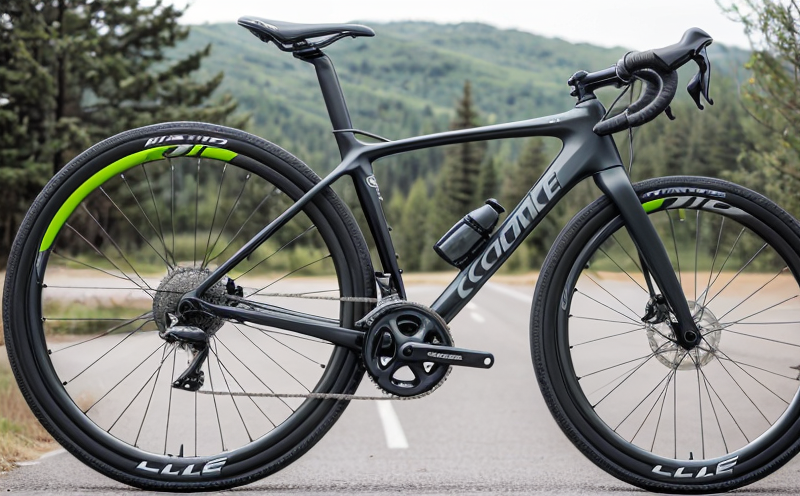IEC 62620 Cycle Life Testing of Large Format Secondary Lithium Cells
The International Electrotechnical Commission (IEC) 62620 standard provides a framework for the evaluation of cycle life and durability characteristics in large format secondary lithium cells. This service focuses on the rigorous testing required to ensure these batteries meet stringent performance criteria, particularly relevant for applications like electric vehicles, energy storage systems, and grid-scale power solutions.
The IEC 62620 standard is designed to assess the endurance of lithium-ion battery packs under controlled conditions that simulate real-world usage. This process involves subjecting the cells to repeated charge/discharge cycles until they reach a specified end-of-life condition or a predetermined number of cycles. The test parameters are meticulously defined in the IEC 62620 standard, ensuring consistent and reliable results across different laboratories.
The testing procedure typically begins with thorough pre-test characterization of the cells to establish baseline performance metrics. This includes measuring initial capacity, internal resistance, impedance, and other relevant electrical properties. The specimens are then subjected to a series of charge-discharge cycles using specific current profiles that mimic expected load conditions in real applications.
The IEC 62620 standard also dictates the environmental conditions under which these tests must be conducted. Temperature control is critical, as lithium-ion batteries can degrade rapidly at high temperatures or with prolonged exposure to extreme cold. The test environment should maintain a constant temperature and humidity level to ensure accurate results.
During testing, data collection is continuous. Voltage, current, internal resistance, and temperature are monitored throughout each cycle. At the conclusion of the specified number of cycles, further post-test measurements are taken to assess any changes in performance metrics. The final step involves a detailed analysis of all collected data to determine the cell's cycle life and durability characteristics.
The results from IEC 62620 testing provide critical insights into the battery's reliability and performance over its expected lifetime. This information is invaluable for quality managers, compliance officers, R&D engineers, and procurement personnel involved in the development and deployment of high-capacity lithium-ion batteries.
Benefits
- Ensures compliance with international standards (IEC 62620).
- Provides reliable data for lifecycle assessment and performance prediction.
- Aids in the optimization of battery design and manufacturing processes.
- Facilitates quality control and assurance through consistent testing protocols.
- Supports regulatory compliance by meeting industry-specific requirements.
The benefits extend beyond mere certification; they contribute to the advancement of sustainable energy solutions. By ensuring that batteries meet stringent performance criteria, this service plays a pivotal role in fostering innovation and reliability within the sector.
Industry Applications
| Application | Description |
|---|---|
| Electric Vehicles (EVs) | IEC 62620 testing ensures that batteries used in electric vehicles can withstand the rigors of repeated charging and discharging, extending their operational life. |
| Energy Storage Systems (ESS) | The durability and cycle life tests are crucial for ESS to ensure they can efficiently store energy over extended periods without degradation. |
| Grid-Scale Power Solutions | Batteries used in grid-scale power solutions must be reliable and efficient, and IEC 62620 testing helps achieve this by simulating real-world conditions. |
The data generated from these tests is essential for optimizing battery performance within various applications. By adhering to the IEC 62620 standard, manufacturers can ensure that their batteries meet the highest quality and reliability standards, thereby enhancing overall product performance and customer satisfaction.
Eurolab Advantages
EuroLab offers a comprehensive suite of services to support your battery testing needs. Our experienced team ensures that all tests are conducted in strict adherence to the IEC 62620 standard, providing accurate and reliable results.
- State-of-the-Art Facilities: EuroLab houses advanced facilities equipped with the latest equipment for precise and efficient testing.
- Expertise: Our team consists of highly skilled professionals with in-depth knowledge of battery technology and testing methodologies.
- Rigorous Quality Assurance: We maintain strict quality control measures to ensure consistent results across all tests.
- Compliance Support: EuroLab helps you stay compliant with international standards, ensuring your products meet global requirements.
EuroLab's commitment to excellence and precision ensures that our clients receive the highest quality of service. With our extensive experience in battery testing, we are well-equipped to provide solutions tailored to your specific needs.





